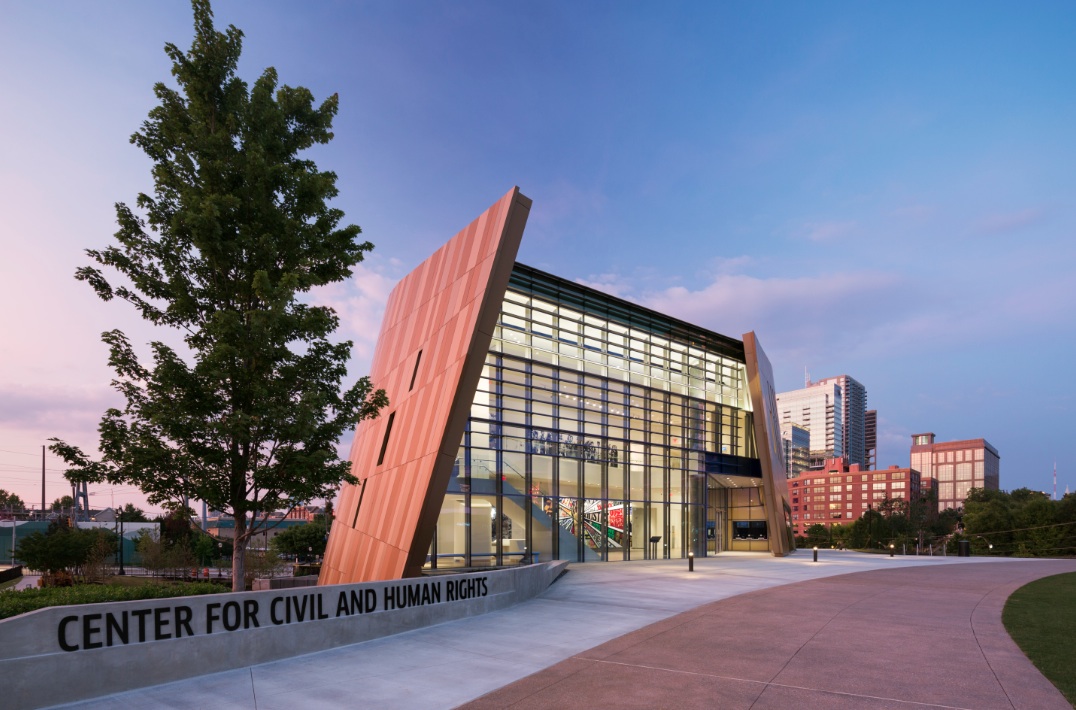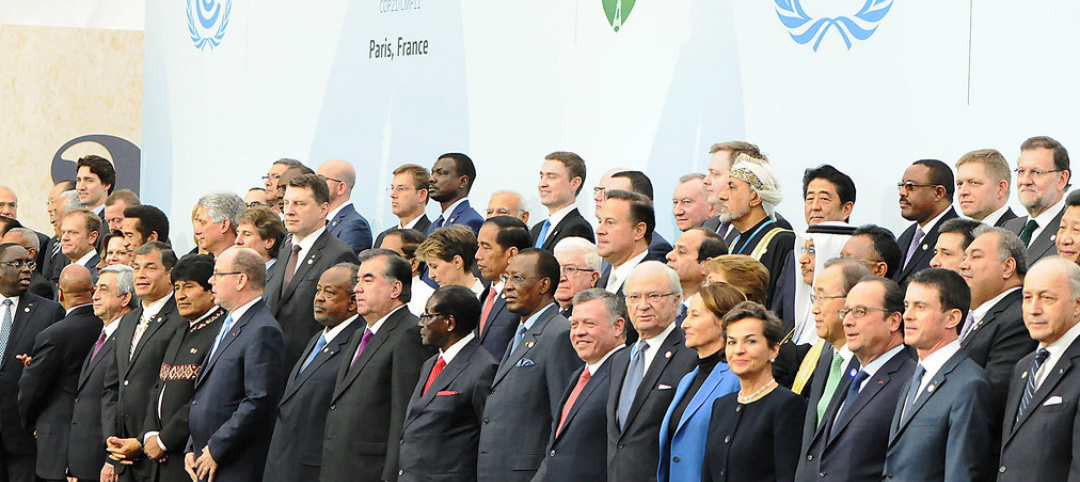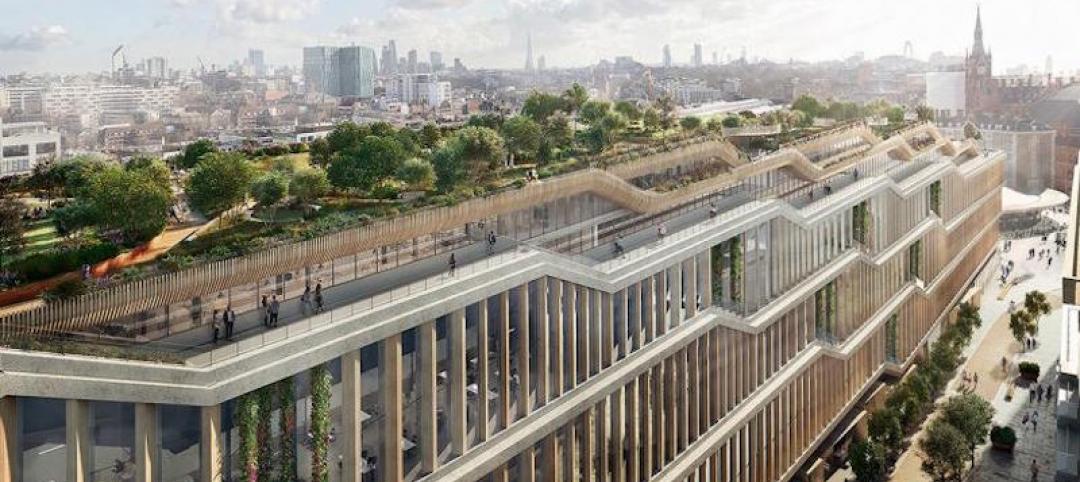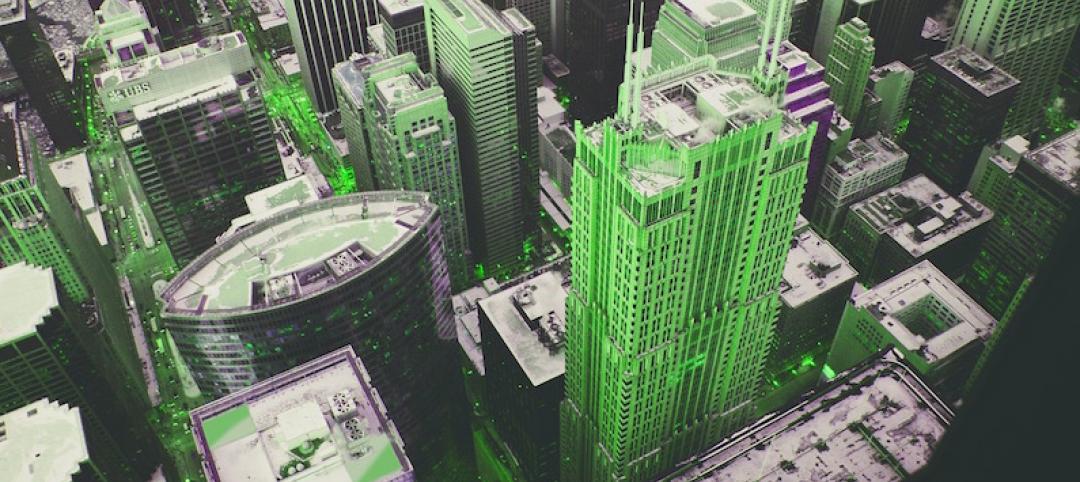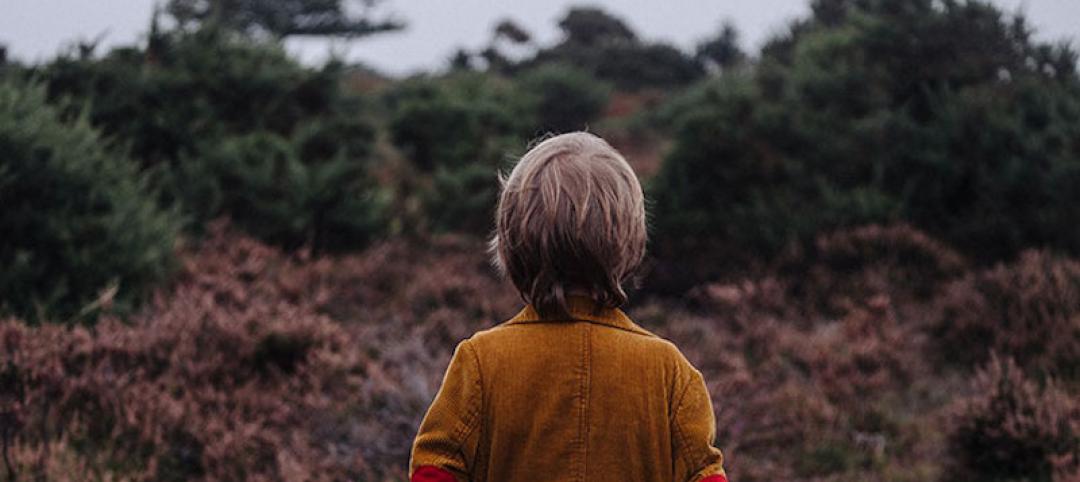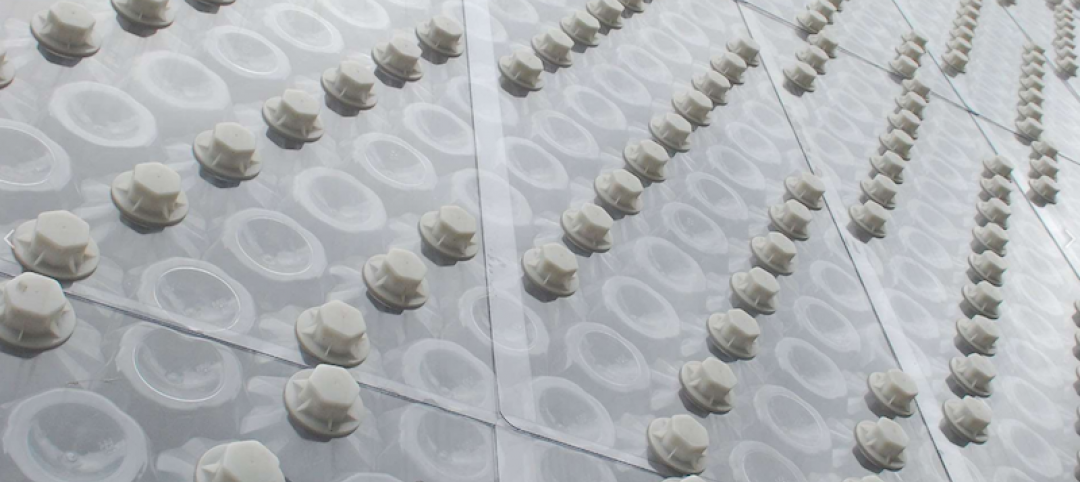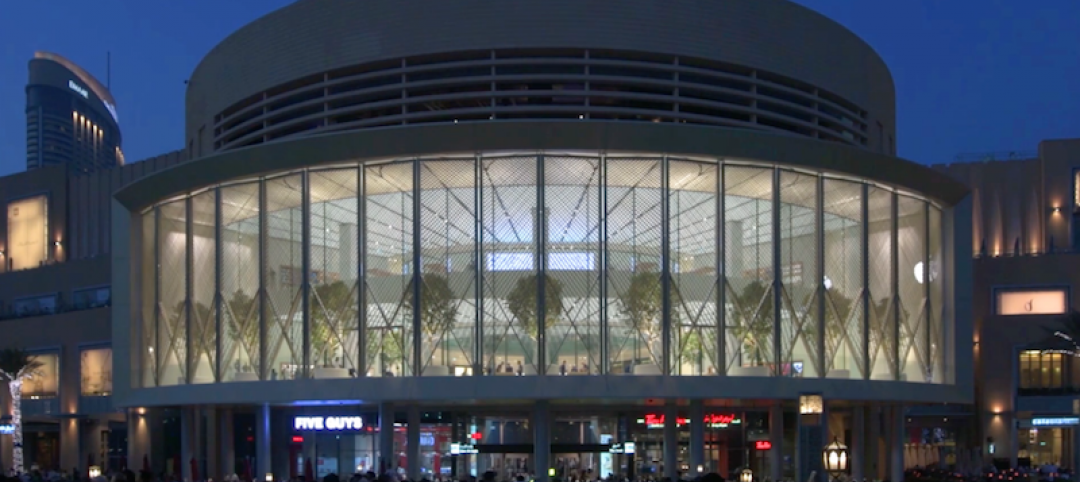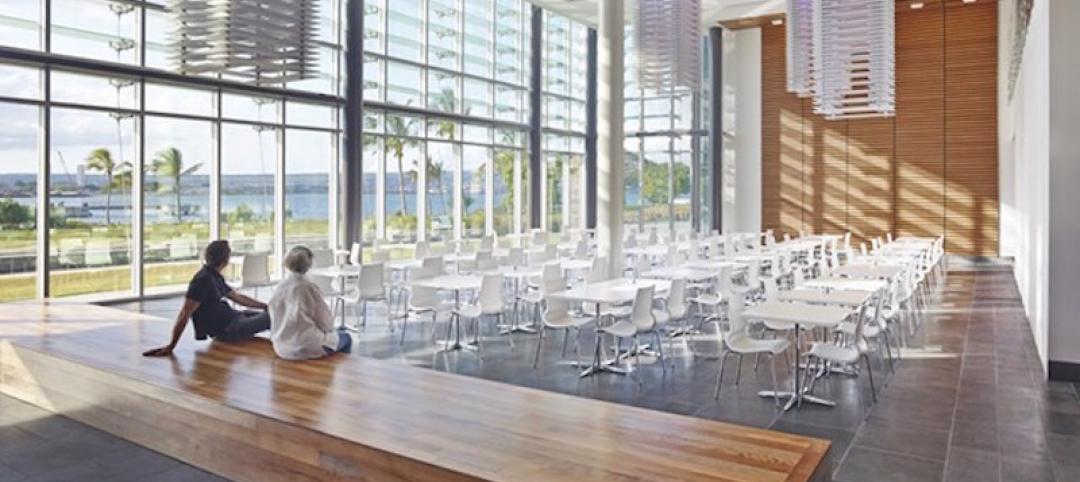Now in its fifth year, the per-capita list is based on 2010 U.S. Census data and includes commercial and institutional green building projects that were certified throughout 2014. Illinois retained its top national position for the second year in a row, with 174 LEED certifications representing 3.31 square feet of LEED-certified space per resident.
Two newcomers to the list, Georgia and Arizona, show that 2014 was a year of major growth for LEED in the South and Southwest regions of the country, while the continued strong performance of Washington, D.C., Maryland and Virginia have helped the mid-Atlantic region remain the epicenter of green building across the country. Washington, D.C., which is not included on the official list of top states due to its status as a federal territory, is notable as it continues to lead the nation with 29.44 square feet of space per resident certified in 2014. Maryland and Virginia finished third and fourth respectively, and both states increased their per capita totals to 2.70 and 2.33 square feet of LEED space per resident in 2014.
The 2014 list had the highest average (2.34) of per capita space certified per resident per state since 2010, and the second highest average to date. Six of the eight states (Ill., Colo., Md., Va., Mass., and Hawaii), which were also on the list in 2013, increased the amount of square feet of space they certified per resident in 2014. Illinois and Colorado are the only two states to make the list every year since 2010.
The full ranking is as follows:

USGBC calculates the list using per-capita figures as a measure of the human element of green building, allowing for a fair comparison of the level of green building taking place among states with significant differences in population and, accordingly, number of overall buildings.
In 2014, LEED for Building Operations and Maintenance was once again the most popular rating system within the top 10 states, representing 48 percent of the total square footage certified. LEED for Building Design and Construction was the second most popular rating system in the top 10, representing 46 percent of the square footage certified and LEED for Interior Design and Construction was the third most popular rating system, representing 6 percent of total square footage certified in these states in 2014.
A sample of notable projects that certified in these states in 2014 include:
- Illinois: The Aon Center, a 3.2 million-square-foot tower in Chicago owned by Jones Lang LaSalle, LEED Silver
- Colorado: Denver Museum of Nature & Science’s Morgridge Family Exploration Center in Denver, LEED Platinum
- Maryland: NASA Goddard Space Flight Center Building 26 in Greenbelt, LEED Gold
- Virginia: University of Mary Washington’s Technology Convergence Center in Fredericksburg, LEED Silver
- Massachusetts: Winchester Hospital Ambulatory Surgery Center in Winchester, LEED Gold
- Hawaii: City Financial Tower in Honolulu, LEED Gold
- California: Levi's Stadium in Santa Clara, LEED Gold
- Georgia: The Georgia World Congress Center in Atlanta, LEED Silver
- Minnesota: Wells Fargo Center in Minneapolis, LEED Gold
- Arizona: Arizona State University Health Services renovation in Tempe, LEED Platinum
- New York: Golisano Institute for Sustainability at the Rochester Institute of Technology in Rochester, LEED Platinum
Collectively, 1,662 commercial and institutional projects became LEED certified within the top 10 states in 2014, representing 251.7 million square feet of real estate. Worldwide, 4,502 projects were certified in 2014, representing 675.7 million square feet.
More than 26,600 projects representing 3.6 billion square feet of space have been LEED-certified to date, with another 42,000 projects representing 8.8 billion square feet in the pipeline for certification. USGBC launched LEED v4, the newest version of the rating system, in the fall of 2013. The latest version continues to raise the bar for the entire green building industry, which Forbes Magazine projects could be worth up to $960 billion globally by 2023. LEED v4 features increased technical rigor; new market sector adaptations for data centers, warehouses and distribution centers, hospitality, existing schools, existing retail and midrise residential projects; and a simplified submittal process supported by a robust and intuitive technology platform.
Related Stories
Green | Jun 14, 2017
After Paris: What’s at stake for the building industry
In the wake of President Trump’s unilateral decision to withdraw the U.S. from the 2015 Paris Climate Agreement, many in the building industry have optimistically pointed to unstoppable market forces pushing the sector towards a post-carbon future.
| Jun 13, 2017
Accelerate Live! talk: Next-gen materials for the built environment, Blaine Brownell, Transmaterial
Architect and materials guru Blaine Brownell reveals emerging trends and applications that are transforming the technological capacity, environmental performance, and design potential of architecture.
Office Buildings | Jun 8, 2017
Take a look at the plans for Google’s new 1 million-sf London campus
Heatherwick Studio and BIG are designing the 11-story building.
| May 30, 2017
Accelerate Live! talk: Health-generating buildings, Marcene Kinney, Angela Mazzi, GBBN Architects
Architects Marcene Kinney and Angela Mazzi share design hacks pinpointing specific aspects of the built environment that affect behavior, well-being, and performance.
Codes and Standards | May 30, 2017
Industry Groups move toward Unified Green Building Model Code in 2018
The effort involves combining ASHRAE's Standard 189.1 with the International Green Construction Code.
Multifamily Housing | May 22, 2017
Zaha Hadid Architects residential development takes a page from a classic Bradbury tale
The buildings are on an elevated platform and the surrounding walkways are suspended so as not to disturb the surrounding ecosystems.
Architects | May 16, 2017
Architecture that helps children fall in love with the environment
The coming decades present a major ecological challenge... so let’s encourage the next generation to do something about it!
Sustainability | May 16, 2017
1.5 million recycled plastic bottles were used to build this nine-story structure in Taipei
The building is made of Polli-Brick, a building material that comes from 100% recycled Polyethylene Terephthalate Polymer.
Retail Centers | May 3, 2017
18 Carbon fiber wings grace Foster + Partners-designed Apple Dubai Mall terrace
The store’s large terrace provides views of the Burj Khalifa and the Dubai Fountain.
Green | May 2, 2017
Green buildings don't have to cost more
What impact does sustainable design have on owners with a finite construction budget or developers who won’t own the building after construction?


